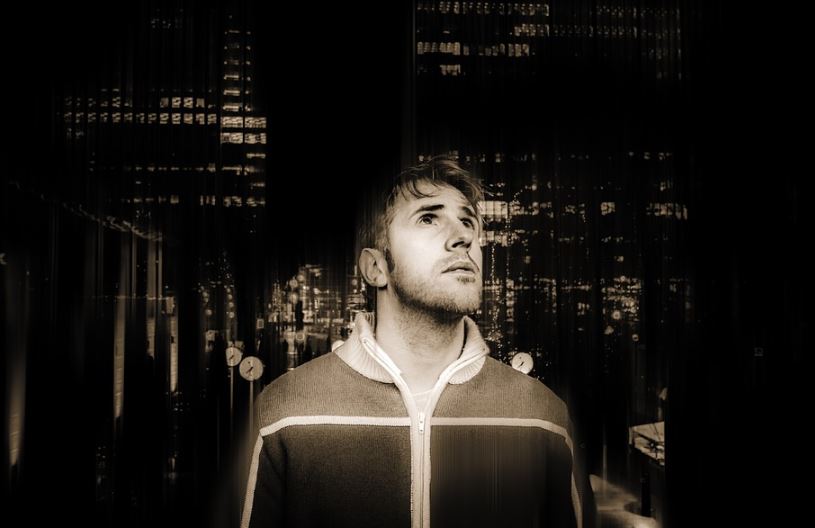Is Suffering a Good Reason to Lose Faith in God?
Murder; war; disease; poverty; hunger; from the beginnings of human civilization these things have plagued humanity. Throughout time humans have beseeched a multitude of sources for explanation and assistance against these trials, to no avail. There has been no single solution to any of these problems, and no certain answer has come from any ethereal or physical realm beyond our planet.
People and communities all over the globe each have their own explanations.
It is difficult that both wonder and horror could come from the same source; so, as a compromise for this counter-intuitive state of things, many presuppose that an Omni-benevolent being created the wonder and that an Omni-malevolent being must be the catalyst for the horror. In order to sleep at night, the Omni-benevolent creator is always more powerful.
There are many questions as to whether this presupposition creates more contradictions than it resolves. For, how could such an all-powerful benevolent force even allow such horror to exist? If anything is possible for this creator, why is suffering even necessary? Theoretically, lessons of experience could be taught immediately without the need for actual suffering. Why the long battle between good and evil?
Depending on how deeply you probe into this line of questioning, the ending answer is almost always that one must have faith that the Omni-benevolent creator is all-knowing and has a good reason, even if it is not readily apparent. For some, this resolves the question as they feel confident that there is knowledge beyond their capability to understand. They are satisfied that while they don’t know the answer, someone with more experience and more ability, the creator, does know the answer. As long as that creator has their best interests at heart, that is more important than them, as an individual, needing to know. Others, however, find this answer disturbing and do not feel comforted.
There is a portion of the population that considers an all-powerful being who is willing to allow suffering to occur while being able to prevent it to be sadistic, no matter what the reason. For example, a vengeful creator seems unworthy of worship if the same feelings of revenge are considered sinful within the same religion. This alone is a reason for them to discontinue belief in such a being. It suffices to say that anger at such a being seems motivation enough to deny the existence of any creator.
Religious and spiritual beliefs seem inexorably tied to deep human emotion.
“Feeling” that a god exists is considered just as acceptable as proof of its existence as “Feeling Nothing” is for there is no one there in the ethereal plane. Both lines of reasoning can never be argued against because emotions are something subjective that have no measurable control group. One never can be sure how one would feel if they found out that there was no god listening, verses a god who chooses not to show itself.
 Yet, the question of suffering persists, regardless of one’s belief. It is a wonder that this particular thing could be such a point of contention between a person and any being capable of creating the planet, solar system, and the universe. It is assumed because humans do not have the ability to create these things, that only an Omnipotent being could possibly have accomplished it. It is also assumed that this creator, in order to create it, must be Omni-benevolent, or have a culture of morals far superior to humanities. These two assumptions seem to be so prevalent that they seem to disappear to the point that people barely realize they are making them.
Yet, the question of suffering persists, regardless of one’s belief. It is a wonder that this particular thing could be such a point of contention between a person and any being capable of creating the planet, solar system, and the universe. It is assumed because humans do not have the ability to create these things, that only an Omnipotent being could possibly have accomplished it. It is also assumed that this creator, in order to create it, must be Omni-benevolent, or have a culture of morals far superior to humanities. These two assumptions seem to be so prevalent that they seem to disappear to the point that people barely realize they are making them.
There are many answers to the question of suffering after taking these two assumptions are taken out of the equation which does not necessarily lead to atheism.
Even if you take for granted that there was a conscious creator, it is not necessarily a given that because a creature can create something that, to us, is quite beautiful, that the consciousness is Omni- anything. It does not follow that because we do not know or have the technology to create a planet or a solar system that, if there is some creature that does they are necessarily all-powerful. It would merely indicate that they knew how to manipulate physics more that we do. Having greater technology does not make one all-powerful, only more advanced.
It does not follow that just because it was created, the creator is intrinsically good. People create things that have immense beauty, wonder and are technologically advanced; yet, human beings are flawed. Human beings do not even necessarily create things and then keep a close eye on them, tending to them and making sure that they never befall harm. Sometimes they create things and then leave them be. Sometimes people create things and then are not even sure how to tend to them properly. It is not a given that even if a creator made the universe, they would necessarily know what to do with it.
These are just a couple of the reasons that the existence of suffering is a poor reason for disbelieving in a deity. There are many reasons to not, however, pervasive suffering is quite sloppy logic which can be easily refuted. It opens up emotional reasons in an area that requires an objective assessment.






